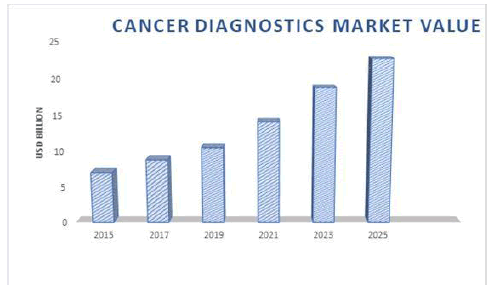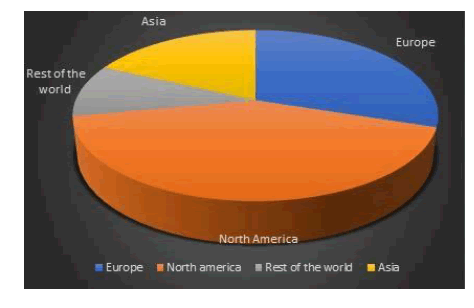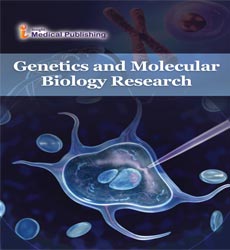Market Analysis of EuroSciCon Conference on Cancer Stem Cell & Oncology Research
Doctor, Department of European Bio Immune (G)ene Medicine Association, France., E-mail: info@ebma-europe.com
Euroscicon Ltd invites all the participants through the globe to join at EuroSciCon Conference on Cancer Stem Cell & Oncology Research which is going to be held during August 05-06,2020, Singapore. which will include keynote presentations, Oral talks, Poster presentations, and Exhibitions. Cancer Stem Cell 2020 is a specially designed cluster conference. The main theme of the conference is “Advanced Research and Developments in Oncology & Cancer Stem Cells” which covers a wide range of critically important sessions. For More details please visit: https://cancerstemcell.euroscicon.com/
Importance & Scope
Cancer is the second leading cause of death worldwide. It’s crucial to remember that cancer is not one disease it’s more than 200 cancer diseases involved. All different, unique diseases, which require different approaches for treatment. Treatments that work for some cancers don’t work for others and sometimes those treatments simply stop working. And only a global search for answers will help us get to grips with this disease. The conference will provide with an exceptional opportunity for the delegates from Universities and Institutes to interact with the world class Scientists and Industry Professionals working in the field of cancer/oncology. The conference will provide with an exceptional opportunity for the delegates from Universities and Institutes to interact with the world class Scientists and Industry Professionals working in the field of cancer/oncology.
Cancer stem cell 2020 will also explore the new ideas and concepts on global scale and the topics Cancer Science & Therapy, Cancer Cell Biology, Organ-Defined Cancers, Tumour Science, Cancer Genetics, Clinical Cancer Research, Cancer & Tumour Immunology, Cancer : Genomics & Metabolomics, Targeted Cancer Therapy, Stem Cell Therapy, Cancer Biomarkers, Tumor Virology, Cancer Nanotechnology, Cancer Treatment & Therapeutics, Cancer Clinical Trials, Cancer Case Reports, Cancer Drug Diagnostics & Therapeutics, Frontiers in Cancer Science, Precision Medicine & Cancer Therapy, Cancer Management & Prevention, Economic Impact of Cancer Therapy.
Why Singapore ?
Singapore is the largest port in Southeast Asia and one of the busiest in the world. Though physically small, Singapore is an economic giant. It has been Southeast Asia's most modern city for over a century. The city blends Malay, Chinese, Arab, Indian and English cultures and religions. Its unique ethnic tapestry affords visitors a wide array of sightseeing and culinary opportunities from which to choose. A full calendar of traditional festivals and holidays celebrated throughout the year adds to its cultural appeal. It owes its growth and prosperity to its focal position at the southern extremity of the Malay Peninsula, where it dominates the Strait of Malacca, which connects the Indian Ocean to the South China Sea. Once a British colony and now a member of the Commonwealth, Singapore first joined the Federation of Malaysia on its formation in 1963 but seceded to become an independent state on August 9, 1965.
Singapore, city-state located at the southern tip of the Malay Peninsula, about 85 miles (137 kilometres) north of the Equator. It consists of the diamond-shaped Singapore Island and some 60 small islets; the main island occupies all but about 18 square miles of this combined area. The main island is separated from Peninsular Malaysia to the north by Johor Strait, a narrow channel crossed by a road and rail causeway that is more than half a mile long. The southern limits of the state run through Singapore Strait, where outliers of the Riau-Lingga Archipelago—which forms a part of Indonesia—extend to within 10 miles of the main island.Market Analysis Report:
Cancer is a disease characterized by the abandoned growth and spread of abnormal cells. If the growth of abnormal cells is not controlled, it can result in death. In Worldwide, one in seven deaths is due to cancer. Cancer causes more deaths than AIDS, tuberculosis, and malaria. According to income when countries are grouped, cancer is the second leading cause of death in high-income countries (following cardiovascular diseases) and the third leading cause of death in low- and middle-income countries (following cardiovascular diseases and infectious and parasitic diseases).
Cancer Diagnostics Market:
The global market size of cancer diagnostics is expected to reach $22.7 billion from $7.1 billion in 2015. Growing prevalence of oncologic cases, constant technological innovations in diagnostics, and increasing requirement for effective screening tests are some of the main factors prompting the demand for screening tools across the world.

Rising awareness and supportive government enterprises are some other factors that are anticipated to increase the growth of the sector during the forecast period. The global cancer diagnostics market is fragmented based on technology, application, and region. Increase in aging population and cancer cases are likely to create a huge opportunity for cancer diagnostics.
Cancer Diagnostic Market, By Technology
Based on technology, the cancer diagnostics market is divided into instrument-based and platform-based. In 2015, the instrument-based segment is predicted to account for a major share of the cancer diagnostics market, by product.
1) Platform Based:
• In situ Hybridization
• Flow Cytometry
• Next-generation Sequencing
• Microarrays
• Others
2) Instrument Based:
• Biopsy
• Mammography
• PET
• Ultrasound
• MRI
• CT
Cancer Diagnostic Market, By Region
Based on region, the cancer diagnostics market is classified into North America, Europe, Asia, and Rest of the World. Rest of the World includes Latin America, Pacific countries, and Middle East and Africa. North America is predicted as the largest share in the cancer diagnostics market, followed by Europe and Asia.

Some of the major performers in the global cancer diagnostics system market are:
• Sanofi (France)
• Novartis (Germany)
• Pfizer Inc. (U.S.)
• Eli Lilly & Company (U.S.)
• ImClone Systems Inc. (U.S.)
• GlaxoSmithKline (U.K)
• AstraZeneca (U.K)
• Schering-Plough (U.S.)
• Boehringer Ingelheim (Germany)
• Bristol-Myers Squibb
• Teva Pharmaceuticals Industries (Japan)
• F. Hoffmann-La Roche Ltd (Switzerland)
• Merck & Co., Inc. (U.S.)
• Chemo Espana SL (Spain)
• CELGENE CORPORATION (U.S.)
• Amgen Inc (U.S.)
• Bayer AG (Germany)
• Takeda Pharmaceutical Company Limited (Japan)
Major Associations Worldwide
• American Association for Cancer Research
• Virginia Cancer Institute
• American Brain Tumor Association
• American Society of Paediatric Haematology/Oncology
• Association of Cancer Physicians
• American Childhood Cancer Organization
• American Society of Clinical Oncology
• Australasian Lung Cancer Trials Group
• International Cancer Research Partnership (ICRP)
• American Association for Cancer Research (AACR)
• American Society of Clinical Oncology (ASCO)
• International Agency for Research on Cancer (IARC)
• Cancer Society of New Zealand
• Irish Cancer Society
• Australian Cervical Cancer Foundation
• Medical Centre Cologne
• Cancer Research UK
• Australian Prostate Cancer Research
• Peter McCollum Cancer Centre
• The European Cancer Organization (ECCO)
• German Cancer Research Centre
Major Medical Universities Worldwide
• Harvard University
• University of Minnesota
• Yale University
• University of Cambridge
• Mayo Medical School
• Pittsburgh School of Medicine
• Yale University
• University of Cambridge
• University of Oxford Stanford University
• Yale University
• Emory University
• John Hopkins University
• Kings College London
• Feinberg School of Medicine
• University of Wisconsin
• UNC School of Medicine
• Karolinska University
Cancer related companies:
Roche | Sanofi | Johnson & Johnson | Merck & Co. (MSD) | Novartis | AbbVie | Gilead Sciences| GlaxoSmithKline (GSK) | Amgen | Pfizer | F. Hoffmann-La Roche Ltd | Celgene Corp |Novartis AG | Bristol-Myers Squibb Co | Samsung Medical Cente
-
EuroSciCon Conference on Cancer Stem Cell & Oncology Research
Singapore
Open Access Journals
- Aquaculture & Veterinary Science
- Chemistry & Chemical Sciences
- Clinical Sciences
- Engineering
- General Science
- Genetics & Molecular Biology
- Health Care & Nursing
- Immunology & Microbiology
- Materials Science
- Mathematics & Physics
- Medical Sciences
- Neurology & Psychiatry
- Oncology & Cancer Science
- Pharmaceutical Sciences
